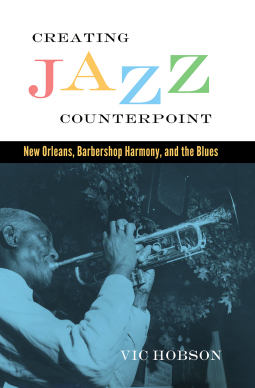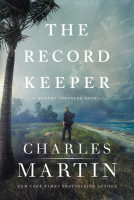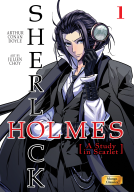
Creating Jazz Counterpoint
New Orleans, Barbershop Harmony, and the Blues
by Vic Hobson
This title was previously available on NetGalley and is now archived.
Send NetGalley books directly to your Kindle or Kindle app
1
To read on a Kindle or Kindle app, please add kindle@netgalley.com as an approved email address to receive files in your Amazon account. Click here for step-by-step instructions.
2
Also find your Kindle email address within your Amazon account, and enter it here.
Pub Date May 06 2014 | Archive Date May 27 2014
University Press of Mississippi | American Made Music Series
Description
A full study of Buddy Bolden and Bunk Johnson confirming their roles in the real blues roots of New Orleans jazz
The book Jazzmen (1939) claimed New Orleans as the birthplace of jazz and introduced the legend of Buddy Bolden as the “First Man of Jazz.” Much of the information that the book relied on came from a highly controversial source: Bunk Johnson. He claimed to have played with Bolden and that together they had pioneered jazz.
Johnson made many recordings talking about and playing the music of the Bolden era. These recordings have been treated with skepticism because of doubts about Johnson’s credibility. Using oral histories, the Jazzmen interview notes, and unpublished archive material, this book confirms that Bunk Johnson did play with Bolden. This confirmation, in turn, has profound implications for Johnson’s recorded legacy in describing the music of the early years of New Orleans jazz.
New Orleans jazz was different from ragtime in a number of ways. It was a music that was collectively improvised, and it carried a new tonality—the tonality of the blues. How early jazz musicians improvised together and how the blues became a part of jazz has until now been a mystery. Part of the reason New Orleans jazz developed as it did is that all the prominent jazz pioneers, including Buddy Bolden, Bunk Johnson, Louis Armstrong, Sidney Bechet, Johnny Dodds, and Kid Ory, sang in barbershop (or barroom) quartets. This book describes in both historical and musical terms how the practices of quartet singing were converted to the instruments of a jazz band, and how this, in turn, produced collectively improvised, blues-inflected jazz, that unique sound of New Orleans.
Vic Hobson, Essex England, was awarded a Kluge Scholarship to the Library of Congress in 2007, and a Woest Fellowship to the Historic New Orleans Collection in 2009. A trustee for the National Jazz Archive, he is active in promoting jazz scholarship and research, and his own work has appeared in American Music, Jazz Perspectives, and the Jazz Archivist
Advance Praise
“In Creating Jazz Counterpoint Vic Hobson delivers a meticulously researched and incisive musicological analysis of how four-part ‘barbershop’ harmony and the blues influenced the development of New Orleans jazz heterophony. The book offers refreshingly new perspectives on Buddy Bolden, Bunk Johnson, Nick LaRocca, and Robert Goffin, as well as ‘baptism by total immersion’ in early jazz repertoire. Highly recommended.”
–Bruce Boyd Raeburn, Curator, Hogan Jazz Archive, Tulane University
Marketing Plan
No Marketing Info Available
No Marketing Info Available
Available Editions
| EDITION | Hardcover |
| ISBN | 9781617039911 |
| PRICE | $60.00 (USD) |
Average rating from 5 members
Readers who liked this book also liked:
Silvia Moreno-Garcia
Historical Fiction, Literary Fiction, Sci Fi & Fantasy
L.M Montgomery
Children's Fiction, Comics, Graphic Novels, Manga, Teens & YA
Sir Arthur Conan Doyle
Comics, Graphic Novels, Manga, Mystery & Thrillers, Teens & YA
Tian Dayton
Health, Mind & Body, Parenting, Families, Relationships, Self-Help


















